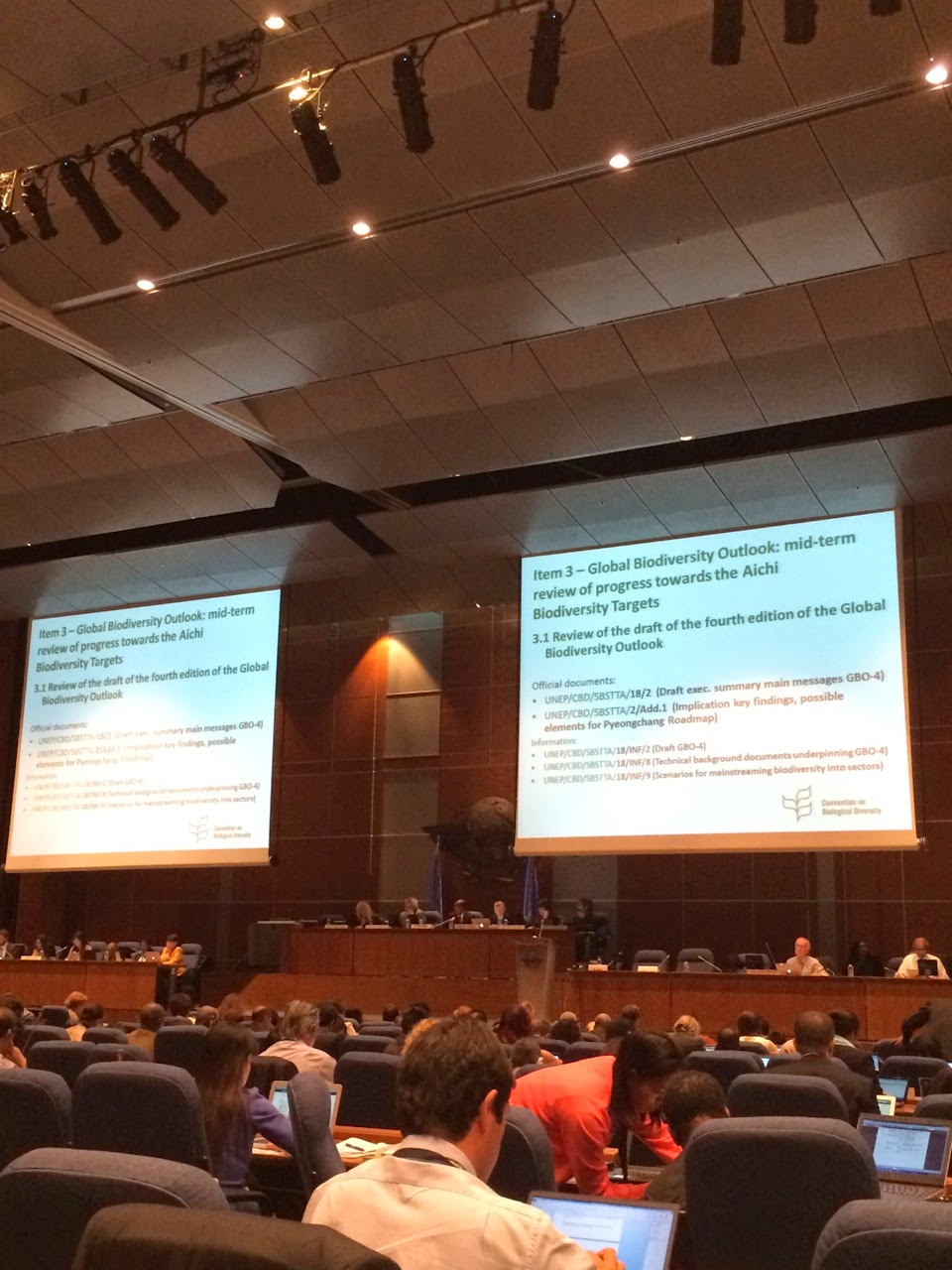 23 June 2014 marked the opening day of the 18th meeting of the Subsidiary Body on Scientific, Technical and Technological Advice (SBSTTA) in Montreal. Several critical issues are on the agenda this year as the Parties prepare for the 12th Conference of the Parties in South Korea in October. These issues include synthetic biology, marine and coastal biodiversity, the fourth edition of the Global Biodiversity Outlook (GBO-4), invasive alien species, the Intergovernmental Science-Policy Platform for Biodiversity and Ecosystem Services (IPBES), and harmful incentives (link to meeting documents).
23 June 2014 marked the opening day of the 18th meeting of the Subsidiary Body on Scientific, Technical and Technological Advice (SBSTTA) in Montreal. Several critical issues are on the agenda this year as the Parties prepare for the 12th Conference of the Parties in South Korea in October. These issues include synthetic biology, marine and coastal biodiversity, the fourth edition of the Global Biodiversity Outlook (GBO-4), invasive alien species, the Intergovernmental Science-Policy Platform for Biodiversity and Ecosystem Services (IPBES), and harmful incentives (link to meeting documents). Synthetic biology is important for a number of reasons, including the potential for users to bypass the Nagoya Protocol through the transfer of digital information rather than genetic material itself. It is anticipated that countries in favor of synthetic biology will call for additional studies and argue that an agreed definition of the term is needed in order to delay any action on the matter by the CBD. However, several studies have already been undertaken, and extensive precedent exists for Parties entering into agreements despite a lack of of key terms being defined (i.e. the Cartagena Protocol). Marine and coastal biodiversity is also a key issue, and civil society has called for real action to address ocean acidification, underwater noise and marine debris.
Also of note is the ongoing preparation of the GBO-4, which will be launched at COP 12 and is currently open for comment until 9 July (although during the 1st plenary session some Parties asked for this date to be extended). GBO-4 includes extensive statistical analysis to predict the likelihood of achieving the Aichi Targets by 2020, and it concludes that while progress is being made toward achieving most of the Targets, most will not be achieved by 2020.
Natural Justice is attending SBSTTA 18 and will be monitoring the discussions throughout the week.
